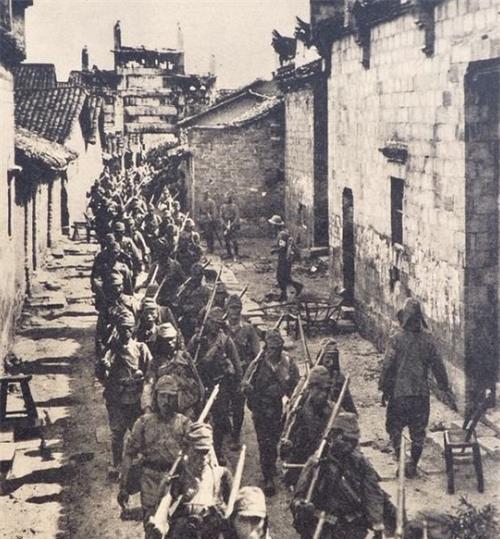Speaking of war, we have to mention the war of aggression launched by Japan against our country in the 30s of the last century, from 1931 to 1945, the Japanese Emperor announced the unconditional surrender of 14 years, Chinese people paid 35 million bloody sacrifices for this purpose in exchange for today's hard-won peace.

However, after Entering the late stage of the war, Japan fell into the quagmire of war, on the one hand, Japan's domestic resources were scarce, and the front line was too long. On the other hand, the United States saw Japan's atrocities in the war and joined forces with Britain to impose an "oil embargo" on Japan, hoping to put pressure on Japan and stop the war of aggression by stopping oil exports.
Because at that time, eighty percent of Japan's oil was imported through the United States, and if Japan did not have oil, it was equivalent to tanks without hearts. In the face of the rapidly changing war situation, Japan is anxious like ants on a hot pot. Against this backdrop, on December 7, 1941, the Japanese Navy formed an aircraft carrier battle group to sneak up on Pearl Harbor, a U.S. military base in the Pacific.
According to post-war statistics, the Japanese sneak attack caused a total of 2,400 U.S. casualties, damaged 188 aircraft, and the Japanese army also sank four battleships and two destroyers. The next day, the United States officially declared war on Japan, and the Pacific War broke out.
The Japanese army, which did not gain half a benefit in the United States, formulated the "No. 1 Battle Plan", hoping to open up a Chinese line of communication in an attempt to destroy the US air base in the southwest. In order to ensure that after the Shanghai communication line was cut off by the United States, Japan could have a land supply line to logistically supply the Japanese army throughout Southeast Asia, and also eliminate the threat of the US Air Force in China to the Japanese mainland.
Against this background, japan gathered 110,000 heavy troops to invade Changsha, the Japanese army from September 1939 to February 1942, carried out three large-scale offensive and defensive battles, after three battles of Changsha, the elite troops of the Japanese army were blocked by our army, flanked, a total loss of 110,000 troops, but never captured Changsha.
After the battle, the commander of the Japanese 11th Army, Anan, was transferred to his post, and the Japanese Government of Hideki Tojo stepped down. The victory in the Battle of Changsha also boosted the confidence of the people of the whole country in the War of Resistance and greatly enhanced China's position in the anti-fascist camp in the world. It also stabilized the security of the southwest rear.
So why is it so difficult to fight in Changsha, Hunan? According to historical records, in 202 BC, Liu Bang established the Western Han Dynasty, its territory is vast, in order to stabilize the world, he rewarded seven princes with different surnames, but with the development of time, the power of the 7 princes has become larger and larger, and it can completely threaten the rule of the regime, in this context, Liu Bang began to find various excuses to get rid of 6 of them.
However, Liu Bang did not act on Wu Rui, a prince with a different surname in Changsha, why? Originally, next to Changsha, there was also a powerful military state of South Vietnam (present-day Guangzhou), in order to maintain this strategic place, Liu Bang not only chose to win over, but also to prevent the rebellion of the State of Changsha, so he sent his own cronies to Changsha to supervise Wu Rui, which shows how important Changsha's strategic position was at that time.
From ancient times to the present, Changsha is a city that has attracted much attention, from the outbreak of the Taiping Heavenly Kingdom Movement, Hong Xiuquan attacked the city all the way, until he met the Xiang army led by Zeng Guofan, it was really an opponent, from Peng Yulin to create the Xiang Army Water Division to completely eliminate the Taiping Heavenly Kingdom Movement took only ten years, which shows the heroism of the Xiang Army. Later generations have made such an evaluation of the Xiang Army, "The Great Qing Dynasty cannot be without the Xiang Army for a day", which is not completely unreasonable.
And Hunan people not only fight heroically, but also produce a lot of famous generals and literati inkers, and today's Hunan is even more transformed.